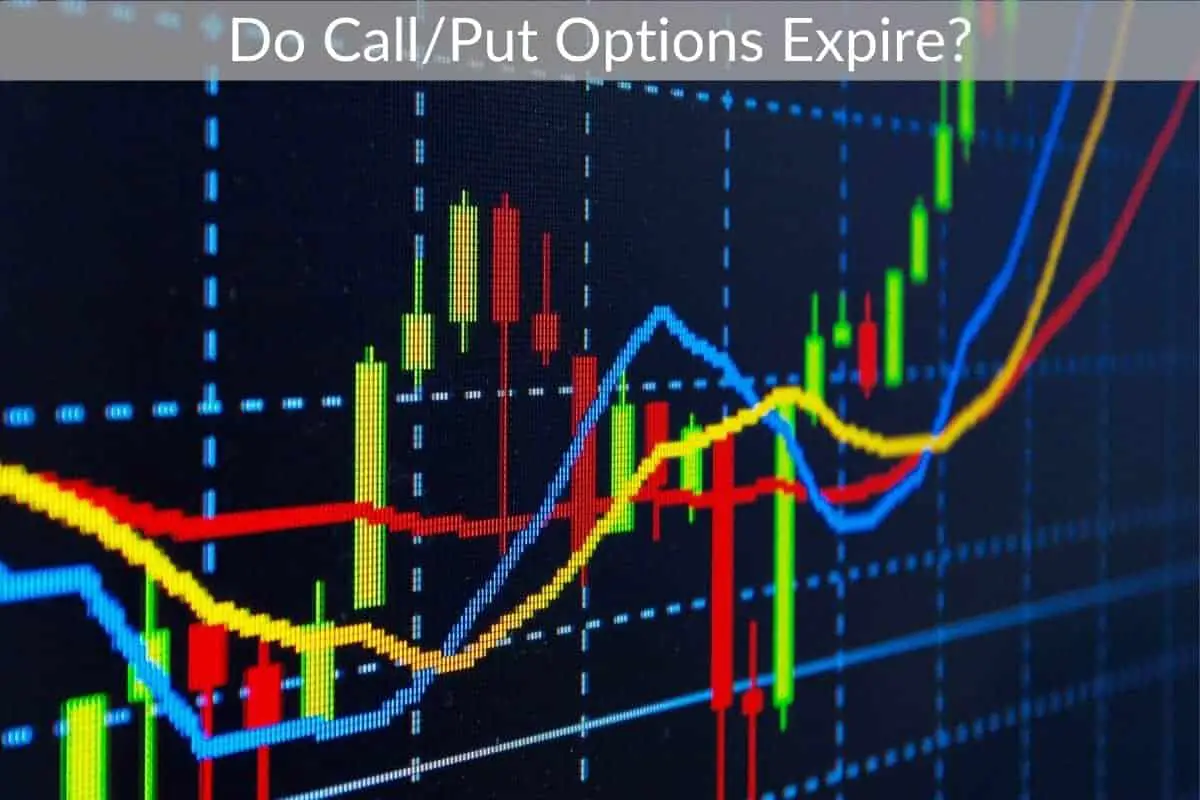Table of Contents
*This post may contain affiliate links. As an Amazon Associate we earn from qualifying purchases.
Call and put options are becoming increasingly popular to buy and sell among investors. Options are a great way to supplement the purchase of a stock or other security.
But when you buy a call or put option, does it expire or last indefinitely?
Call and put options will expire at some point. Options sellers set the expiration date, which the buyer knows when they purchase them.
Options can expire in the money or out of the money, which benefits either the seller or buyer. Alternatively, an option can be sold or exercised before expiration if your profit or other goals have been reached.
This article explains how call and put options expire. It also looks at what happens when an option expires either in the money or out of the money. I’ll also suggest some books that you can use to learn more about options.
Call/Put Option Expiration
The expiration date of an option contract is when the buyer must exercise the option. Otherwise, it expires with no value, and the seller keeps the stock.
You can exercise options traded on United States’ markets at any time before the option expires or at the time of expiration. However, options sold on other markets, such as in the U.K., must be exercised at the time of expiration and no sooner.
The expiration date is important for countries where you must exercise the option on that date. You need to consider the amount of time between when you purchase or sell the option and when the option expires because the security price can fluctuate in that time.
For example, say you buy a call option for a specific stock, and you are trading on a market that requires you to wait until the expiration date to exercise the option. If the stock price increases above the strike price with fourteen days left until expiration, you will have to wait and hope the stock price stays above the trading price until you can exercise it on the expiration date.
Of course you can always sell it before that if you choose.
If the stock price goes back down below the strike price and stays below the strike price until expiration, you will not be able to exercise it even though the option was in the money at one point.
Flexible markets that let you exercise your option at any time give you much more time to exercise your option. However, as a buyer, you still need to choose an expiration date that is far out enough that there is a chance that the option becomes in the money.
However, sellers should not choose an expiration date that is too far away. This ensures that there is less risk that the option will become in the money and be exercised before expiration.
In-the-Money Option Expiration
In-the-money options are best for the option buyer because they have the choice to exercise the option, sell the option, or let the option expire. The seller will then have to buy or sell the option if the buyer exercises.
Call options expire in the money when the strike price of the option is lower than the trading price of the stock. When this happens, the call buyer can purchase the stock from the call seller at the strike price, which is cheaper than buying the stock at the current price.
Puts are the opposite of calls, which means they are in the money when the option’s strike price is higher than the stock’s current trading price.
When a put expires in the money, the buyer can exercise the option and sell their stock to the seller for the strike price. Although the stock price went down, the option buyer sold their stock for more money than they would have if they sold it at the current price.
Out Of The Money Option Expiration
Out-of-the-money options are better for the seller. When an option is out of the money when it expires, it has no value to the buyer, so the seller can keep the premium they made on the option and not sell or buy the stock or other security that the seller wrote the option against.
A call option is out of the money when the strike price is higher than the stock’s current value when the option expires. Since the buyer can buy the stock on the market for less than they can with the option, the option has no value.
The buyer will let the option expire since there is no point in exercising it.
As mentioned above, put options are the opposite of call options in that they expire when the strike price is lower than the stock’s current trading price. When the current trading price is above the strike price, there is no reason for the buyer to exercise the option and sell the stock.
If they wanted to sell, they could do so at a higher price by just selling on the open market.
Learn More About Options
Here are some books that you can use to learn more about buying and selling options:
- Options Trading: The Complete Crash Course 3 books in 1: This book gives you all the basics of trading options. This includes explaining how trading options can enhance your portfolio, what strategies you should use when trading, and the common mistakes to avoid when trading options.
- Trading Options at Expiration: Strategies and Models for Winning the Endgame: This book is all about trading options when they expire for the best profits with the lowest risk. The strategies focus on market exposure instead of choosing the right investments.
- Options Trading Strategies: The Ultimate and Complete Guide: This book covers stock options and how you can trade them for high returns. You will learn strategies for earning a passive income with options and how to choose a broker to trade your options with.
Final Thoughts
Put and call options expire on a given date, called the expiration date, which the seller sets when they write the call. Options either expire in the money, which is beneficial for the buyer, or out of the money, which is preferable for sellers.
Some countries require you to wait until the expiration date to exercise an option, while other countries are more flexible.

